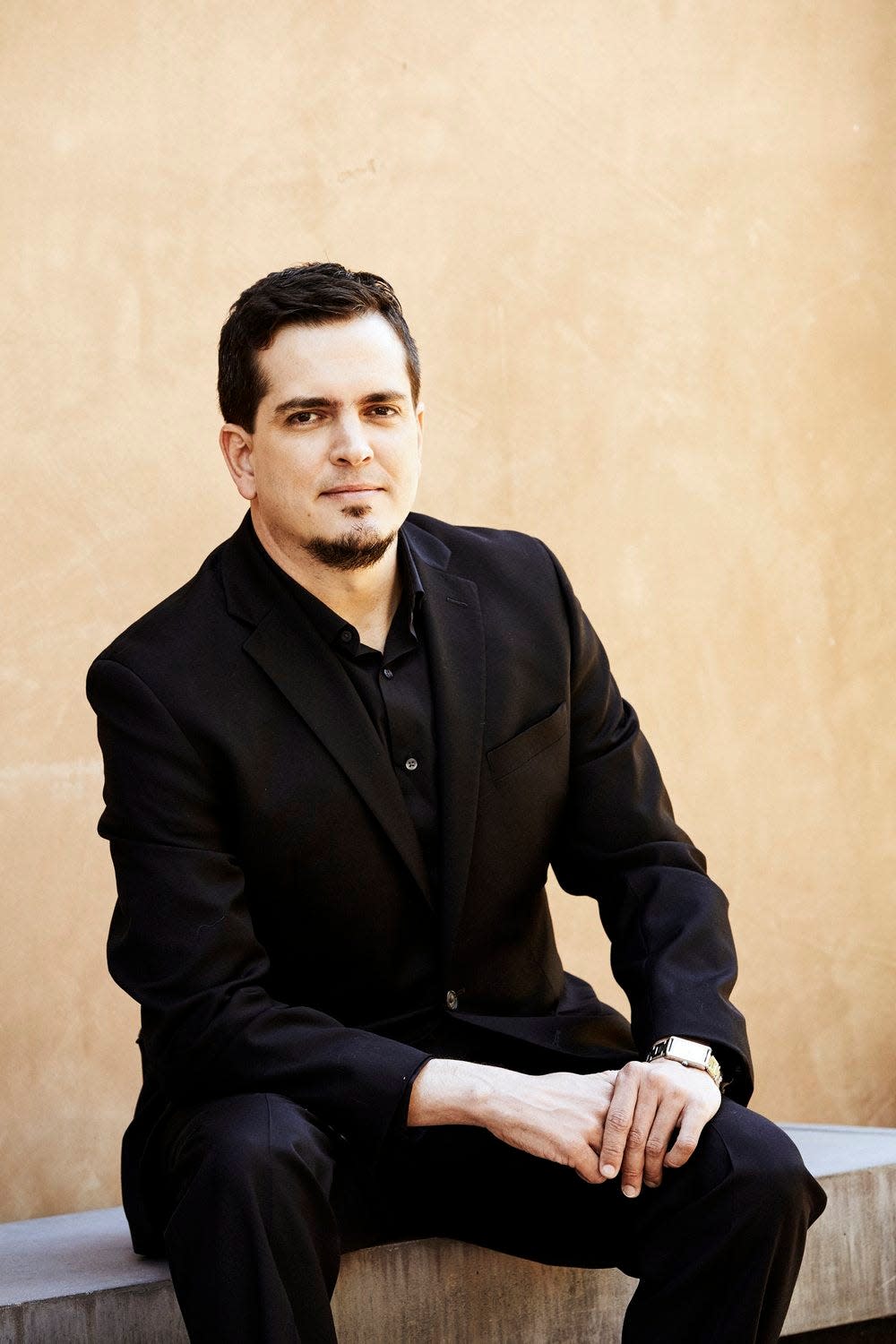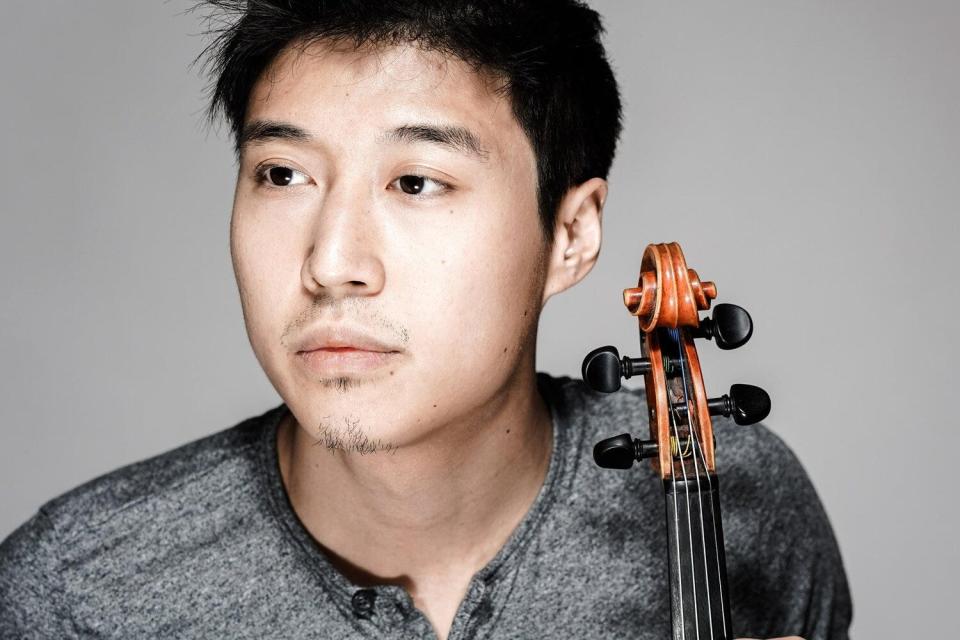Naples Philharmonic, Izcaray and Yang blend the new, the big for an engrossing evening

- Oops!Something went wrong.Please try again later.
New is only excitng when it's applied to cars and furniture. Otherwise we cringe at new.
We don't want to try a "new" toothpaste because they've discontinued our brand. We're not sure why we're nagged to try something new at a restaurant when we're sure we'll love the meat loaf or salmon. And too many of us remember just what happened with the "new" Coke in 1985.
So imagine buying tickets to a Naples Philharmonic concert at Artis—Naples at which two of the works are guaranteed new. But those of us who didn't, and stayed home sewing an applique over that T-shirt we won't give up, missed a fun opportunity Friday or Saturday, April 22-23.
Carlos Izcaray, the guest conductor, was also the composer for the first piece, "Geometric Unity." It's named for the Eric Weinstein mathematic theory that, in simple language, sees relativity in an “observerse." Observerse is a 14-dimensional space that injects 10 more dimensions into our familiar four-dimensional world (three dimensions of space plus time).
Discuss and debate the theory; the musical soul of this work is much clearer. Its evolving emotional thread was created as a Zoom recording to introduce a virtual gala during the COVID-19 pandemic for the American Youth Symphony.
"My 'Brady Bunch' orchestra," Izcaray joked about its opening online performance. What Naples was seeing Friday and Saturday night was the premiere of it in an enhanced, live, full-orchestra version.
Someone can tell Izcaray to keep the score; "Geometric Unity" weathered the transition beautifully. It opens the door with harp, flute and piano notes before its floating theme begins, eventually pulling the entire orchesra into it with thoughts from various instruments before it rises to a full-enemble farewell that slices off precisely, suprisingly, at the end. It's an impressive work that we think has a life past the pandemic.
The concerto "For a Younger Self," by Black composer Kris Bowers, came with a double advantage. Both its premiere principals, violinist Charles Yang and Izacary as conductor, were reprising its February 2020, premiere. But the Naples Philharmonic rather than the American Youth Symphony, was the engine this time.
Coming to Artis—Naples: Next year, 'Disney's Aladdin'; 'Mean Girls'; jazzman Marsalis; 'Jesus Christ Superstar'
AND: Gulfshore planning a big 'Tosca' for Artis—Naples, Barbara B. Mann in Fort Myers
The philharmonic rises to the challenge of Bowers' music. A Hollywood composer in demand, he has scored films such as "Little Boxes, "Repect" and "Green Book," and TV series: "Dear White People," "When They See Us" and "Mrs. America."
While you can expect birthmarks from moviedom, this is a concerto that has solid classical roots from a Juilliard alum. Bowers incorporates percussion in different ways — not necessarily booming, sometimes just a wood block at the apropriate moment. He also works in envelopes of music, with the violin offering one snatch of melody and the orchestra then taking up another.
Bowers doesn't work with throw-away music, either; any one of his phrases could be expanded on for a theme. Yang is the perfect person to deliver it. He emerges onstage beaming in black-and-white tennies, and has shed his tuxedo jacket so he's down to business in this performance.
The cadenzas are not overwhelming gymnastics pieces but fast-paced workhorse playing, and there's never a sense that this is "new music." It's involving and energizing.

You would have thought Izcaray and the philharmonic had dedicated themselves solely to perfecting the first half until the first movement of Prokofiev's Symphony No. 5. This is a work for a heavy-duty orchestra, and the philharmonic has been bulked up with eight cellos, several extra violas and basses and probably half-dozen more violins. And then there are more percussion, plus harp and piano.
Yet the peformance is limber and cohesive, a tribute to the work on both sides of the baton. This one was frankly more exciting than two versions I listened to previewing it.
A note to those watching for hints of Andrey Boreyko's successor in all the guest conductors: This is the second appearance in a little over 13 months for Izcaray, music director for the Alabama Symphony and the American Youth Symphony.
We still have a number of conductors coming in, some of them for second programs. But the final Masterworks May 5 and 6 is Boreyko's actual farewell, and no one will complain about the warhorse he's chosen to ride out on: the Rachmaninoff Piano Concerto No. 2.
Harriet Howard Heithaus covers arts and entertainment for the Naples Daily News/naplesnews.com. Reach her at 239-213-6091.
This article originally appeared on Naples Daily News: Review: Naples Philharmonic, Izcaray, Yang, new music is rewarding

